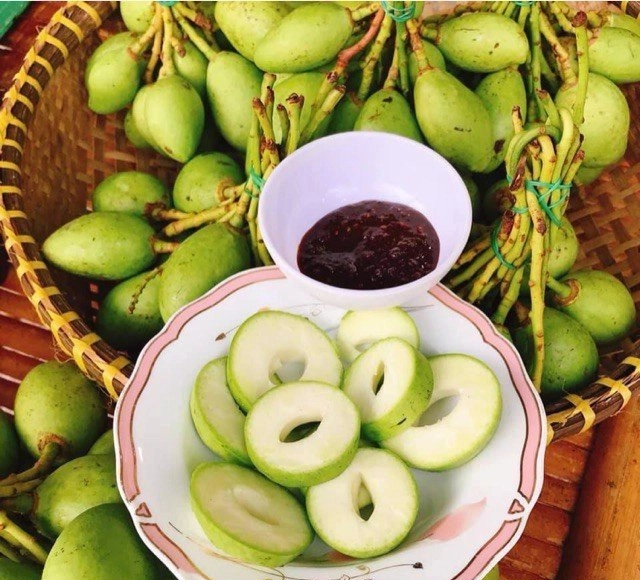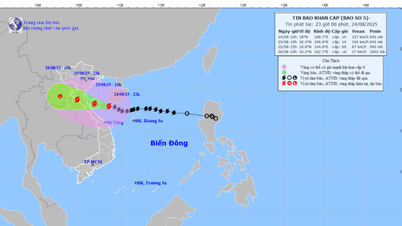When it comes to summer fruits, mangoes are a must. Although delicious and nutritious, not everyone is suitable for this fruit.
Mangoes are delicious and good for your health, but not everyone should eat them regularly (Illustration photo)
In addition to its delicious taste, mangoes are also loved for their many health benefits. Eating mangoes can improve immunity, digestive health and vision, prevent diabetes and reduce the risk of certain cancers... But no matter how delicious and good they are, there are 5 groups of people who are not suitable to eat mangoes.
1. People with kidney disease
Eating too much mango is harmful to the kidneys, so people with acute and chronic nephritis and kidney failure should not eat it. Mango is a fruit rich in potassium, it will overload the kidneys and make the disease worse, even life-threatening if eaten too much at once.
Mangoes are loved by many people because they can be eaten from young to fully ripe (Illustration photo)
In addition, mangoes contain acids, amino acids, and proteins, which are highly stimulating substances that will affect the renal cortex during the excretion process. In particular, the level of kidney damage will increase if mangoes are eaten with hot foods such as garlic, chives, chili, ginger, alcohol, cinnamon, star anise, etc.
2. Diabetic patients
For people with diabetes, if you do not choose fruit carefully, some types that are too sweet will increase blood sugar. In the long term, this can lead to dangerous complications, even life-threatening.
Meanwhile, mangoes are often eaten directly, without cooking, so they retain high levels of vitamins, sugar and minerals. Therefore, eating too much mango is not good for health, especially for those who have to follow a diet such as overweight, obese, diabetics, etc.
Ripe mangoes are high in sugar so they are not good for diabetics, especially if you drink mango juice or smoothies (Illustration photo)
If you have diabetes, when using mango, you should note that you should eat green mango instead of ripe mango and do not eat more than 200 - 300g per day. Because more than 90% of calories in mango come from glucose and fructose. Therefore, diabetics who eat a lot of ripe mango can increase blood sugar levels, making the disease worse.
3. People with diarrhea or stomach disease
Those who are suffering from diarrhea and eat mango will make the condition worse because mango contains a lot of fiber, increasing the risk of diarrhea. Besides, mango is also a hot fruit and rich in nutrients, difficult to digest. People who are suffering from diarrhea or often have diarrhea, eating a lot will make the condition worse, causing fatigue and physical decline.
In particular, people with stomach problems should limit or best stay away from mangoes, especially green or overripe mangoes. Because green mangoes are too sour, with a lot of sap, they will have a bad effect on the stomach, causing pain or other disorders. As for ripe mangoes, the high vitamin C content leads to belching, gastric reflux, causing stomach contractions and can even lead to extremely dangerous stomach bleeding.
4. People with asthma
Traditional medicine notes that mangoes are neutral and contain allergenic ingredients. People with asthma should not eat mangoes because they can cause allergies. Not only does it irritate the throat, causing more and more severe coughing, but it also causes difficulty breathing and respiratory failure.
In the long run, it can make the disease worse quickly or eating too much mango at once can cause the disease to flare up and endanger your life. Instead, asthma patients should eat more green vegetables, whole grains, black beans, tomatoes, etc.
5. People with skin diseases, allergies
Traditional medicine believes that the decline in the function of the spleen and stomach causes acne. Mangoes are neutral and cold, which greatly affects the spleen and stomach. Therefore, people with acne should not eat mangoes.
People with rashes, ulcers, and pus-filled wounds cannot eat mangoes, because eating them will make the condition worse. In addition, the high sugar content in ripe mangoes will make skin conditions worse, so people with this group of diseases should stay away from them.
People with sensitive skin or allergies to urushiol when eating mangoes are very susceptible to allergies. Mild symptoms can cause itching around the mouth and lips, burning tongue, dry eyes, hives. Severe symptoms can cause anaphylactic shock, life-threatening.
In addition, it is important to remember that ripe or green mangoes can be sour and acidic. Therefore, this fruit is not suitable to eat on an empty stomach. It will irritate the stomach, increase gastric juice and the risk of intestinal diseases. It can even lead to dizziness, stomachache, "mango intoxication" or temporary poisoning. Pregnant women can also eat mangoes, but should only eat a small amount of about 100 - 200g per day and should not eat regularly.
PV (synthesis)
Source



































































































Comment (0)